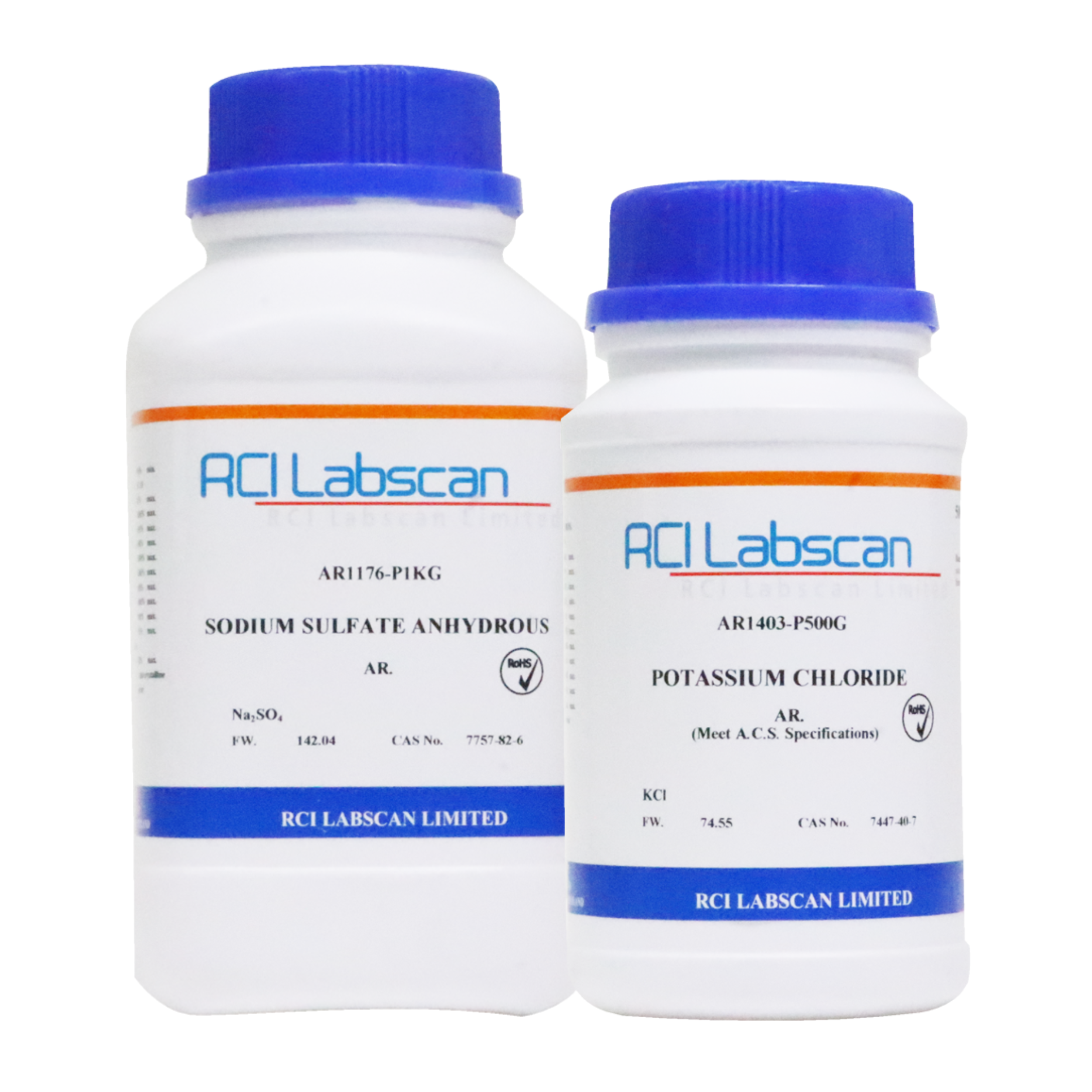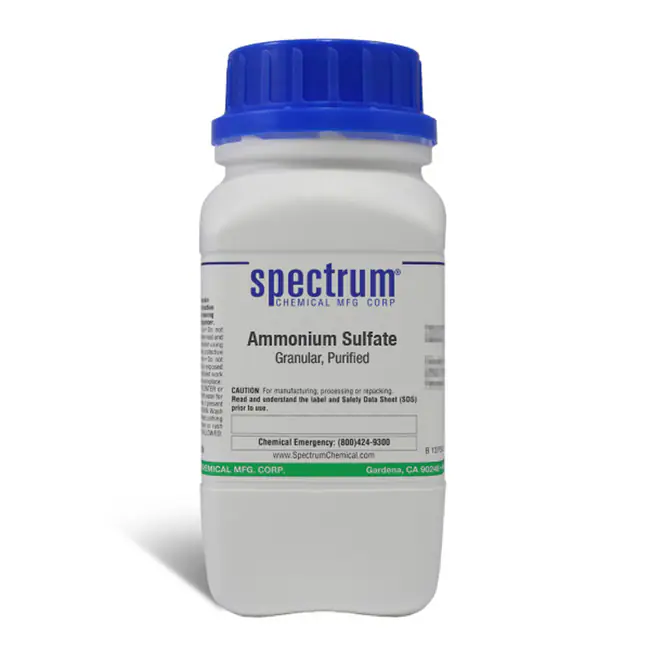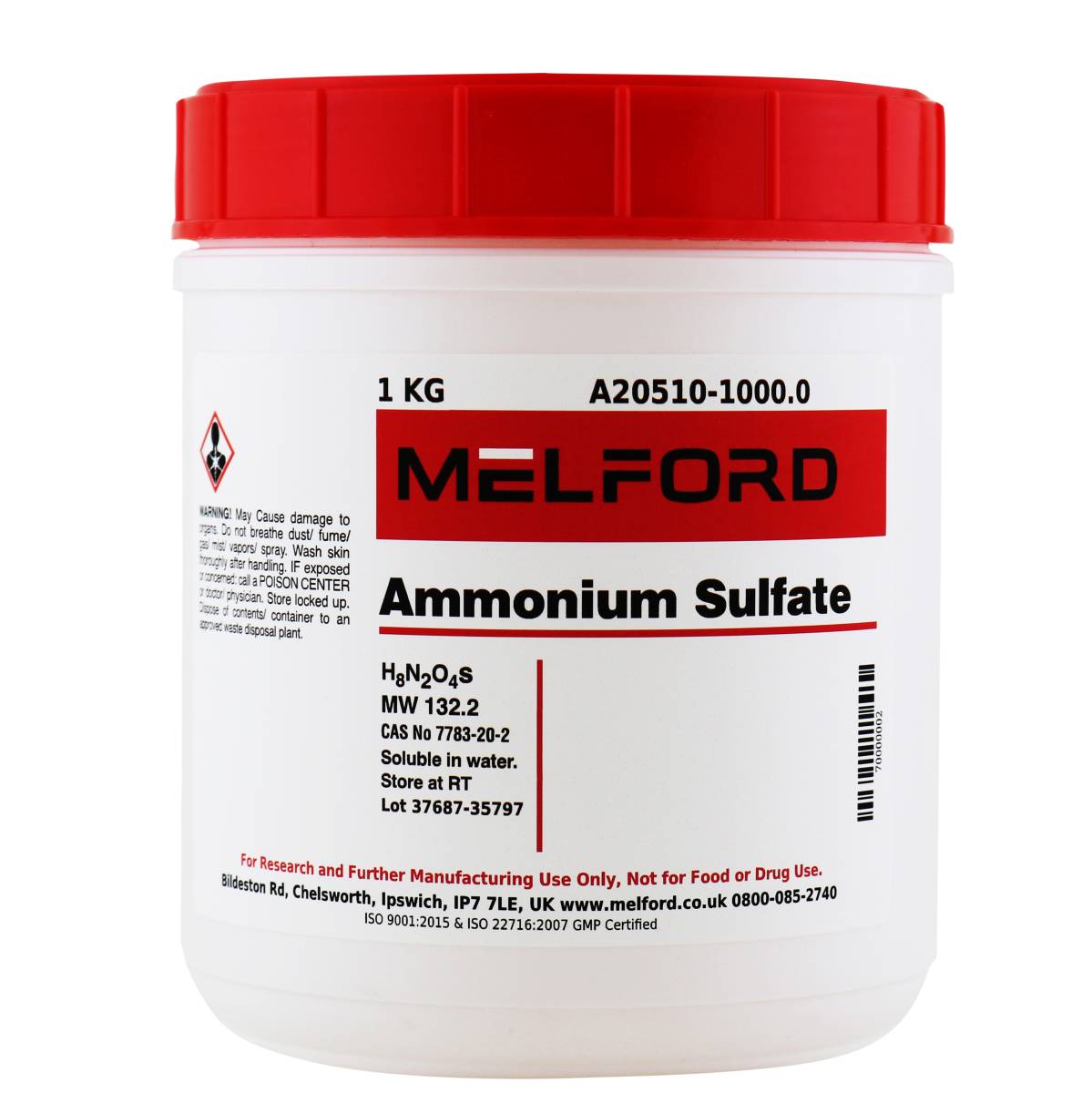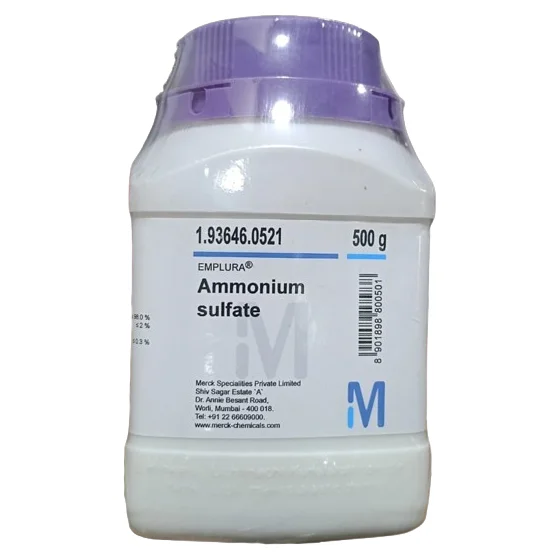Description
Ammonium Sulfate: A Versatile Compound with a Wide Range of Applications
Ammonium sulfate, also known as diammonium sulfate or (NH₄)₂SO₄, is an inorganic salt with a wide array of applications spanning agriculture, industry, and even scientific research. This white crystalline solid is typically produced as a byproduct from various industrial processes, making it a readily available and relatively cost-effective chemical compound.
The Cornerstone of Agriculture: Fertilizer and Soil Amendment
The most prominent use of ammonium sulfate lies in the agricultural sector. It serves as a highly effective fertilizer, delivering two essential nutrients for plant growth: nitrogen and sulfur. Nitrogen is a vital component of chlorophyll and amino acids, crucial for photosynthesis and protein synthesis. Sulfur, on the other hand, is essential for the formation of certain amino acids, enzymes, and vitamins.
Ammonium sulfate is particularly beneficial for alkaline soils, as the ammonium ion is slowly converted to nitrate in the soil, releasing acidity and lowering the pH. This is particularly important for crops that thrive in slightly acidic environments. It is often used for crops like rice, corn, wheat, and various vegetables.
Furthermore, ammonium sulfate’s granular form makes it easy to apply and distribute evenly across fields, ensuring consistent nutrient availability for plants. Its solubility in water also allows for easy incorporation into irrigation systems for fertigation.
Beyond the Farm: Industrial and Laboratory Applications
While agriculture dominates its usage, ammonium sulfate also finds applications in various industrial and research settings. Some notable examples include:
- Water Treatment: It can be used in water treatment processes to produce chloramine, a disinfectant used to combat bacteria in drinking water.
- Food Industry: As a processing aid, it can be used as a dough conditioner, a general purpose food additive, and even as a nutrient for yeast fermentation.
- Textile Industry: Ammonium sulfate is employed in the dyeing of textiles, aiding in the proper absorption and bonding of dyes to the fabric.
- Biochemistry: It’s an essential tool in protein purification. A technique known as “salting out” utilizes ammonium sulfate to precipitate proteins from aqueous solutions based on their solubility. By gradually increasing the concentration of ammonium sulfate, different proteins can be selectively precipitated, allowing for their separation and purification.
- Flame Retardant: It can be used as a flame retardant material, especially in wood products.
Production and Safety Considerations:
Ammonium sulfate is primarily produced as a byproduct from processes such as the steel production industry (specifically the coking process) and the production of caprolactam (a precursor to nylon-6). It can also be synthesized by reacting ammonia with sulfuric acid.
While generally considered safe, ammonium sulfate should be handled with care. Dust inhalation can cause irritation to the respiratory tract, and contact with skin or eyes can cause mild irritation. It is also important to store it in a dry environment to prevent caking.
Conclusion:
Ammonium sulfate, with its multifaceted applications, remains a valuable and widely used chemical compound. Its importance in agriculture as a cost-effective fertilizer cannot be overstated, while its versatility in various industrial and research settings further solidifies its significance. Understanding the properties and applications of ammonium sulfate is crucial for professionals in agriculture, chemistry, and various related fields. As advancements continue in these sectors, ammonium sulfate is likely to remain a vital component for years to come.





















Reviews
There are no reviews yet.